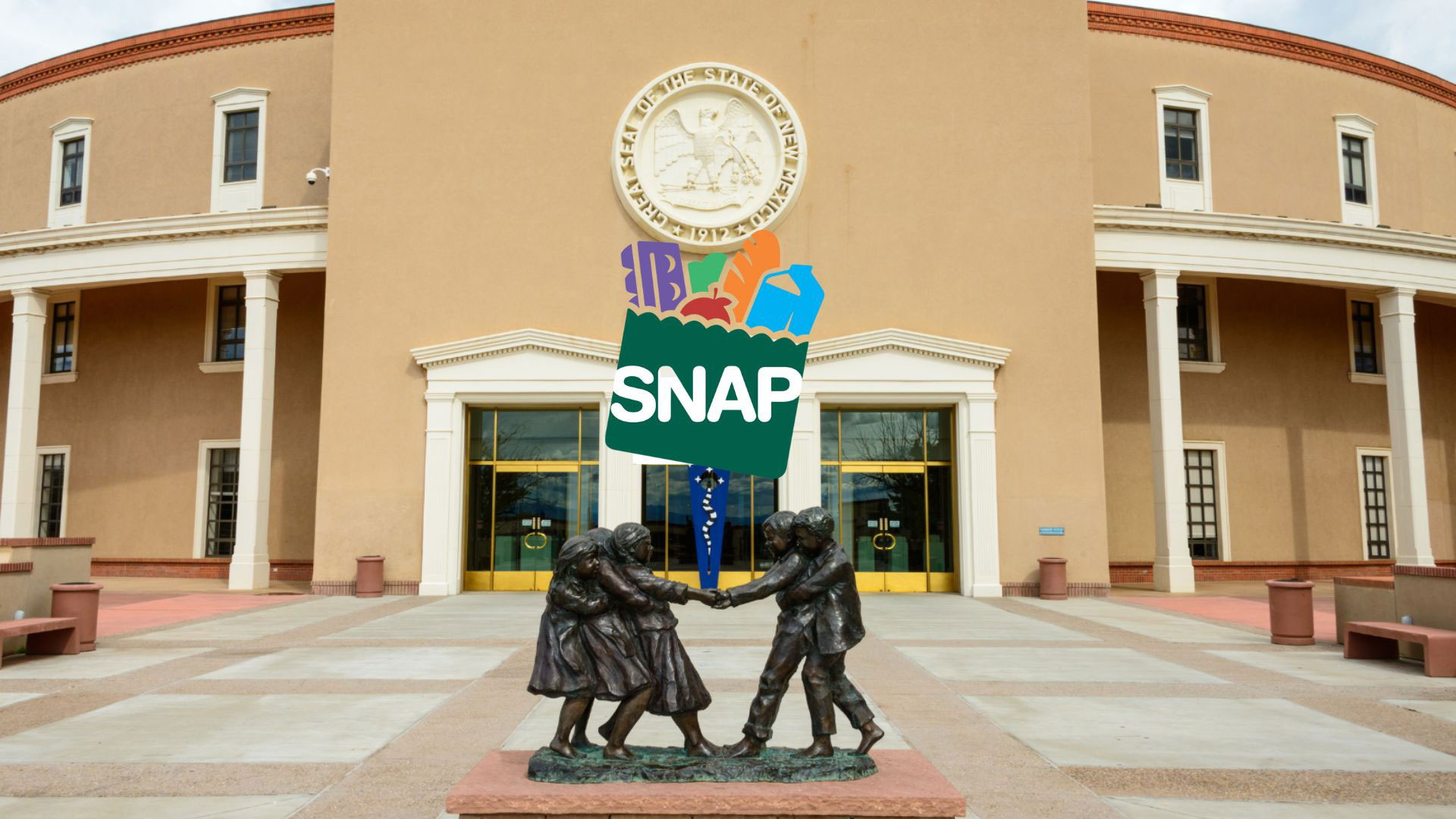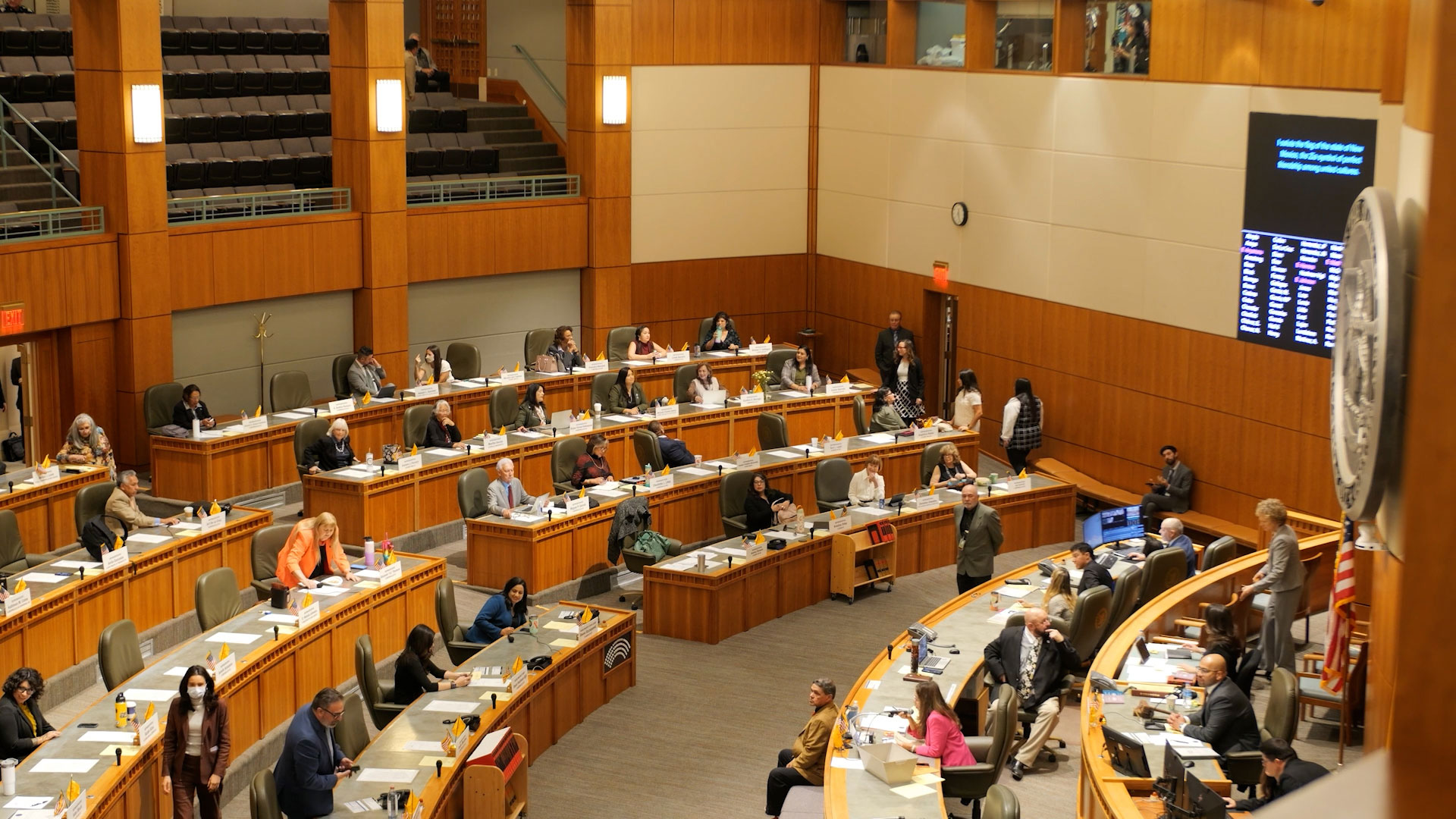Tug-Of-War Over Feeding Americans in Need Ends, Though New Mexico Was Ready if It Hadn’t

The longest federal government shutdown in U.S. history has come to an end, and with it a tug-of-war over the nation’s largest anti-hunger program: the Supplemental Nutrition Assistance Program, known as SNAP or food stamps.
The entitlement program doesn’t usually stall during shutdowns. In fact, in its 60-year history, it never had before. Beginning Nov. 1, the Trump Administration suspended federal funds for the program, refusing to dip into reserves to keep it even partially afloat. What followed on the national stage was a litany of lawsuits and conflicting court rulings, causing not only confusion, but worry for the nearly 42 million people who rely on the assistance.
U.S. Rep. Melanie Stansbury, D-N.M., told me this week that she visited food banks across her district over the last few weeks and that, “people are scared.”
That’s despite the fact that the one in five New Mexicans on SNAP never had their EBT cards run completely dry, unlike recipients in some other states. Gov. Michelle Lujan Grisham issued $30 million by executive order to give people the first 10 days’ worth of their would-be benefits with state funds. Then, as Nov. 10 approached, she called lawmakers into a special session to keep state food benefits flowing if the federal money remained held up.
Lawmakers approved more than $162 million to that end on Monday, the same day the U.S. Senate passed a funding bill to open the government. The state money was conditional, and would only be doled out if needed, which it now won’t be since the U.S. House passed the bill to end the shutdown and President Trump signed it on Wednesday.
Still, we bring you to the Roundhouse this week to learn what got done, if not only because holding the four-hour session cost New Mexico taxpayers about $75,000. But also because the debates and votes were starkly different than what played out in Washington D.C., with state Republicans far more supportive of food assistance.
When asked about that, Democratic House Speaker Javier Martínez said after the session, “There is support from a lot of (state) Republicans for this work because we all have people who are impoverished in all of our communities, and we care about them.”
New Mexico has the highest SNAP enrollment rate of any state in the nation, totaling 451,200 last year, or 21% of residents. More than 60% of those families have children, according to the Center on Budget Policy and Priorities. More than 40% are working. And more than 30% have a family member who is elderly or disabled.
Another reason we bring you to the Roundhouse this week to watch our unpaid Legislature do its thing is that, unlike the food benefits, a different provision in the bill lawmakers passed is not at this point moot.
Republicans brought an amendment that passed in both chambers that requires an evaluation of how the state administers the SNAP program. Our state has one of the highest error rates in the nation, at around 15%, made up of over- or under-spending based on applicant or state agency mistakes, sometimes quite small ones. If New Mexico doesn’t get that rate down to around 5%, it’ll soon be penalized under Trump’s Big Bill to the tune of $150 million or more a year. So, the stakes are high to make improvements.
The Legislative Finance Committee will use $50,000 of its unspent budget to analyze the Health Care Authority’s administration of SNAP. Preliminary findings are due to lawmakers in January, with a final report due by July.
Whatever that research unearths will supplement ongoing efforts at the agency to make improvements on its own, Health Care Authority Secretary Kari Armijo told lawmakers this week, while affirming she welcomes the help of the LFC. In last month’s special session, lawmakers approved $1 million to prevent layoffs of state SNAP administrators, and another $8 million to assist Armijo and her department in bettering its food program.
In addition to taking you to the special session in Santa Fe this week, and beyond the SNAP debate both locally and nationally, we hear Congresswoman Stansbury’s reflections on the 43-day shutdown, how it came to an end, and what battles lie ahead for New Mexico’s all-Democratic congressional delegation.
– Nash Jones, Host
-
Tug-Of-War Over Feeding Americans in Need Ends, Though New Mexico Was Ready if It Hadn’t
The longest federal government shutdown in U.S. history has come to an end, and with it a tug-of-war over the…
-
Early Plans to Redevelop State Fairgrounds
11.14.25 – In October, the State Fairgrounds District Board voted unanimously to adopt a multimillion-dollar predevelopment plan. Nash Jones speaks…
-
Water Conservation in New Mexico for the Next 50 Years
11.14.25 – Last year, state officials launched a 50-Year Water Action Plan. Executive Producer Jeff Proctor sits down with State…
-
Special Session Sets Aside Just-in-Case Funds for SNAP Recipients
11.14.25 – Days before DC reopened, state lawmakers sprinted to the Roundhouse for a just-in-case special session to preserve access…
-
Stansbury on End of Government Shutdown
11.14.25 – President Trump signed a funding bill that reopened the federal government Wednesday night, closing the 43-day chapter on…





